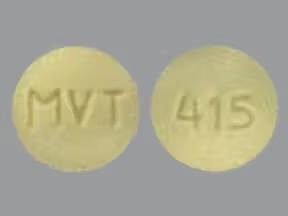Estradiol/norethindrone/relugolix Interactions
There are 668 drugs known to interact with estradiol/norethindrone/relugolix, along with 24 disease interactions, and 9 alcohol/food interactions. Of the total drug interactions, 183 are major, 466 are moderate, and 19 are minor.
- View all 668 medications that may interact with estradiol/norethindrone/relugolix
- View estradiol/norethindrone/relugolix alcohol/food interactions (9)
- View estradiol/norethindrone/relugolix disease interactions (24)
Most frequently checked interactions
View interaction reports for estradiol / norethindrone / relugolix and the medicines listed below.
- Aimovig (erenumab)
- Ajovy (fremanezumab)
- Celebrex (celecoxib)
- Cymbalta (duloxetine)
- Dayvigo (lemborexant)
- Emgality (galcanezumab)
- Endep (amitriptyline)
- Fentanyl Transdermal System (fentanyl)
- Humira (adalimumab)
- Jornay PM (methylphenidate)
- Liletta (levonorgestrel)
- Lyrica (pregabalin)
- Melatonin Time Release (melatonin)
- Metoprolol Tartrate (metoprolol)
- Mirena (levonorgestrel)
- Mounjaro (tirzepatide)
- Norflex (orphenadrine)
- Nurtec ODT (rimegepant)
- Paracetamol (acetaminophen)
- Periactin (cyproheptadine)
- Phenergan (promethazine)
- Primrose Oil (evening primrose)
- Ritalin (methylphenidate)
- Saxenda (liraglutide)
- Seroquel (quetiapine)
- Toradol IM (ketorolac)
- Valium (diazepam)
- Vitamin B2 (riboflavin)
- Vitamin B6 (pyridoxine)
- Vitamin D3 (cholecalciferol)
Estradiol/norethindrone/relugolix alcohol/food interactions
There are 9 alcohol/food interactions with estradiol / norethindrone / relugolix.
Estradiol/norethindrone/relugolix disease interactions
There are 24 disease interactions with estradiol / norethindrone / relugolix which include:
- abnormal genital bleeding
- abnormal vaginal bleeding
- carcinomas (estrogenic)
- hypercalcemia in breast cancer
- hypertension
- thromboembolism/cardiovascular
- hepatic neoplasms
- breast malignancy
- liver disease
- thromboembolism
- angioedema
- gallbladder disease
- hypercalcemia
- hyperlipidemia
- liver disease
- melasma
- depression
- fluid retention
- glucose intolerance
- retinal thrombosis
- thyroid function tests
- QT prolongation
- hyperlipidemia
- weight gain
More about estradiol / norethindrone / relugolix
- estradiol/norethindrone/relugolix consumer information
- Compare alternatives
- Reviews (16)
- Side effects
- Dosage information
- During pregnancy
- Drug class: sex hormone combinations
- En español
Related treatment guides
Drug Interaction Classification
| Highly clinically significant. Avoid combinations; the risk of the interaction outweighs the benefit. | |
| Moderately clinically significant. Usually avoid combinations; use it only under special circumstances. | |
| Minimally clinically significant. Minimize risk; assess risk and consider an alternative drug, take steps to circumvent the interaction risk and/or institute a monitoring plan. | |
| No interaction information available. |
See also:
Further information
Always consult your healthcare provider to ensure the information displayed on this page applies to your personal circumstances.


